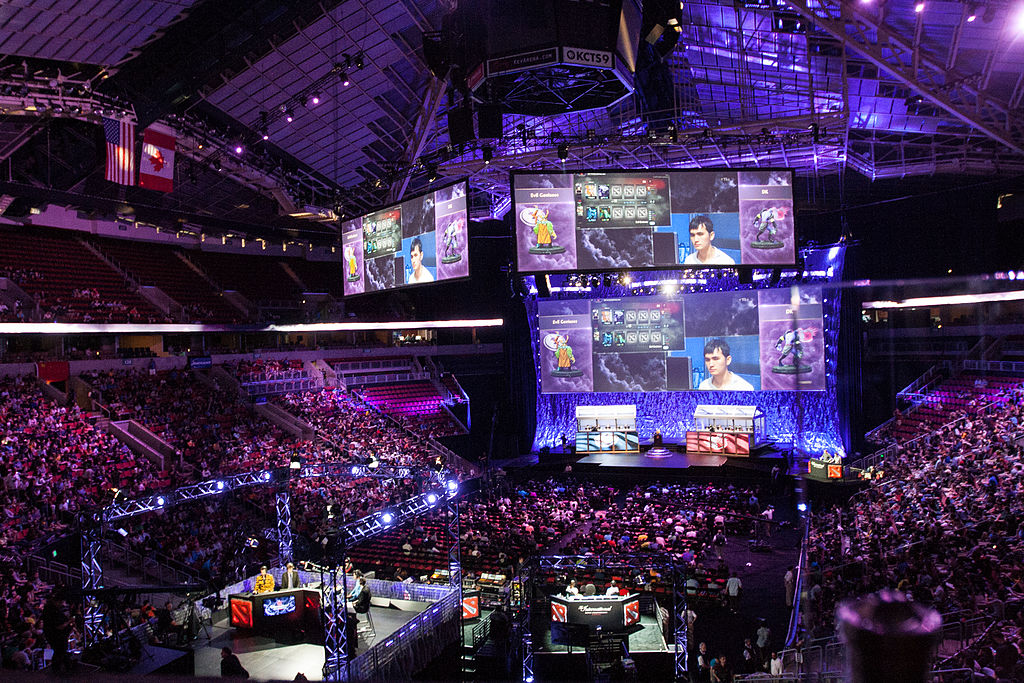TL;DRI'd recommend reading up on addiction and PTSD. Also consider how the Game itself will be able to meet the needs of many different kinds of players, and how in doing so would make them dependent on it. Also look into the current day anti-gaming hysteria, as much of your own story could be a direct contrast to it. Also, think Facebook.
Yeah, sorry. This is longer than I meant it to be.
Intro: We could already be in this world, depending on who you ask. Gaming is commonly pointed to as being the cause of many of the modern social ills, from the "obesity epidemic" in modern countries to social anxiety, depression, suicide, or even violence which could lead to an increase in murder rates. Let's assume for the moment that it's true, what would make a gamer want to be a gamer?
Addiction is the commonly-named devil. In today's world, I think it's the only one ever given. It's a good descriptor as it is frequently used by gamers to describe videogames (eg, current-gen MOBA addiction) while being vague enough to allow one to envision it into being as threatening as an unhealthy love of chocolate or as benign as daily meth use. It's also a great way to demonize something without bothering to try and understand what drives the addiction to begin with.
So why would a gamer choose to play a game that can kill them? I could write a book on just this, but I'll cover what I consider hasn't been said yet.
Minimizing Cons: Many intelligent people will accept more danger than they realize, either through belief, relying on bad information, or due to our in-built preference for early gain over far-off consequences. I'll give a few examples below.
Perceived Danger is less than Actual Danger - The world is a messy place, filled with messy information. Some information is more correct, sure, but it's hard to say what is true. I see no reason to simplify this in a Sci-Fi world. The actual danger could be unknown, leaving many people guessing at what the cause of these new comas are.
For example: the comas are linked to both Game play as well as energy drink consumption, is this an odd correlation or could it be the cause? Well, my friend has over 10,000 hours of Game play and hasn't experienced any problems, so it can't be the Game. Yo, did you hear that the pro player who live-stream comaed just broke up with his girlfriend an hour before? Just don't play on a bad day man. Wireless signal density in the lower metropolitan area may be linked to genetic damage and may be an indicator for those at risk. It's a calcium deficiency. WHAT ABOUT THE VACCINES?!?
Truth be told, having a new epidemic creates a new marketable need. Think organic food and homeopathy; new products will spring up to offer solutions and answers on what the new problem might be. Some may be honest mistakes based on anecdotal evidence and may even offer some benefits, while others will outright lie or use it to drive their own agenda. As long as it doesn't immediately threaten all living humans, society will be happy to argue, sensationalize, and make money off of it. No rush, especially if altering the Game would have a large impact on society. And it would.
However there's also the possibility in which the actual danger is known but hidden, which leads us down the rabbit-hole. If the Game company has a good media and marketing group, they can coerce public opinion. Or maybe they can make the believers out to be the crazy ones, ostracizing the truth. Eg the conspiracy is the cover up.
Actual Danger also exists in the virtual tech - It could be that the tech the new Internet runs on itself may cause the problem, the Game just increases the risk. This is like the difference between smoking a pack a day and a pack and a half a day. It's there, but if you know about the risks it may not seem as much of a problem.
The Benefits: Due to having a third of the population playing the Game, it will be a primary force in the story's culture, especially if that third was isolated in a specific area (say, the developed world). As the Game is Culture, many will play it just to be part of the in crowd. The Game's influence in Economy will be large, and could be similar to how Entropia Universe
combines real money with virtual property, Second Life focuses on social groups and custom content, or be based on making transferable wealth through inter-game cryptocurrencies. Likewise checking the current top PC games shows that games focusing on quick slices of action (or rounds), creativity and world-building seem the most popular, especially when mechanics are fairly simple to start. However, games like Eve Online show that adding optional depth can lead to die-hard fans. All of this is based on the merits and technology behind the game, little to do with any dependency. Instead it fulfills the needs of the player to create, be noticed, hone their technique, and to encounter novel experiences. Basically fits with the Bartle Taxonomy of Player Types.
To bring in the population and keep them playing, all you need is intertia and a low barrier to entry. Imagine if all you had to do to view Facebook was close your eyes. If the Game is tightly integrated with the virtual world, so that falling into it is as easy as changing a filter on your virtual HUD (think Augmented Virtuality sitting on top of plain old Augmented Reality), then habit will take players where they need to go. And the more virtual reality becomes the norm, the less likely you'd have to do real things, like drive to work.
Important to note is that even in a relatively prosperous and safe nation, it may still be safer to go into a game that may kill you. Not only is it easier to go get drunk at a virtual pub than it is to go to a real life club, worry about fights, being hit by cars, passing out in the cold, muggings, ending up stranded with no cash, etc. But the likelihood of dying is probably low in many areas. And even if you die, so what you'll probably be fine in the morning.
As for pain and PTSD; well we already live in a world where people are starting to feel disconnected in real life, while gaming and online relationships can create long-term friendships. Deep friendships are also built on shared painful experiences, such as war. As the disconnect with the real world grows, virtual pain (not "real" but real enough) could make the virtual seem more like reality, while giving you a chance to become something else and find others that can actually know you.


